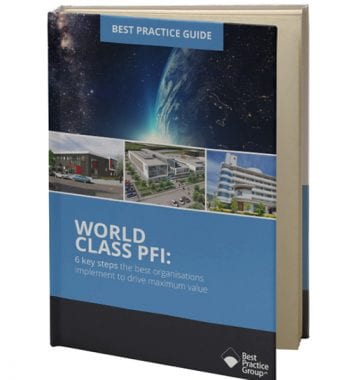 Although it sounds like a mundane issue, a good PFI document management and filing system is an essential tool for effective contract management. The need for an efficient filing system for management of any complex contract should be self-evident; however, this need is magnified in the case of a PFI contract.
Although it sounds like a mundane issue, a good PFI document management and filing system is an essential tool for effective contract management. The need for an efficient filing system for management of any complex contract should be self-evident; however, this need is magnified in the case of a PFI contract.
The main reasons for this are:
- The need to keep and have easy access to documents over a 20-30 year period
- The scope and complexity of PFI contracts
- Continuity and change management.
This article will explain why spending time on setting up these systems pays for itself in the long run and gives practical tips on both folder structure and name conventions to make the many hundreds of PFI related files manageable.
PFI Document Management – 5 Tips for Good Practice
Adopting the following key principles will make PFI documentation easier to navigate and can be used as a tool for effective contract management:
Tip 1: Standardise main folders and key documents
These should cover the following categories as a minimum:
- Contract documentation (all the documents produced at financial close, including the financial model, site plans and area data sheets)
- Contractor reports
- Correspondence
- Meetings
- Change control
- Benchmarking and market testing
- Finance
- Other operational issues.
All PFI related documents should slot easily into one of these categories. With the right folder structure, new staff will be able to find documents without having to guess their location. This can be made easier by controlling the content and number of files and folders through:
- Use of separate, clearly identified sub-folders for storing superseded documents and those relating to issues that are no longer “live”
- Standard naming conventions, dating and version control of all documents, particularly those likely to go through several iterations (change notices, annual service plans, etc.)
- Use of dated/numbered sub-folders for documents created on a regular basis (correspondence, change control, monthly reports, etc.)
- Use of document/ folder titles which are likely to be meaningful to new staff.
Tip 2: Use registers
Are essential to keep track of:
- Correspondence to and from the contractor
- Change control (refer to our article on PFI change management for further information)
- Archived documents.
Tip 3: Do not delete documents
It is impossible to know what may become an issue over the lifespan of the contract, so it is advisable to keep all documents – both current and earlier versions – throughout the contract period. This applies to any documents the client team may have inherited from the construction and pre-construction periods, as it is surprising how often issues that were agreed at these stages resurface during the operational period.
Tip 4: Ensure easy access to archived documents
The easiest way to keep track of PFI documentation is to make arrangements with the IT department to exempt PFI folders from compulsory archiving. If this is not possible, you should ensure that the Operations Manual sets out the location, content and access instructions for all hard copy and electronic archives.
Tip 5: Save key emails in relevant folders
No further explanation necessary!
In Summary
- Good filing is essential in PFI and saves time in the long run
- Folder structures should be standardised and have meaningful titles
- All documents should be retained with non-current files in a separate sub-folder
- Registers should be kept of correspondence, etc.
- Access to archived documents must be maintained
- Copies of key emails should be saved in the relevant folders.
You may also be interested in reading our article on how you can transform your PFI meetings from being a burden to an effective management tool. Click here to read on to discover 5 key ways you can achieve this.
For support and advice on any operational PFI issues, please do not hesitate to contact Vicky by calling 0845 345 0130 or by email: advice@bestpracticegroup.com

